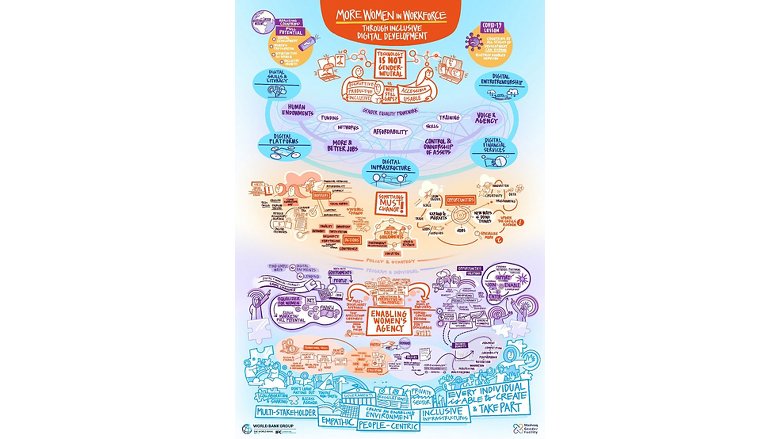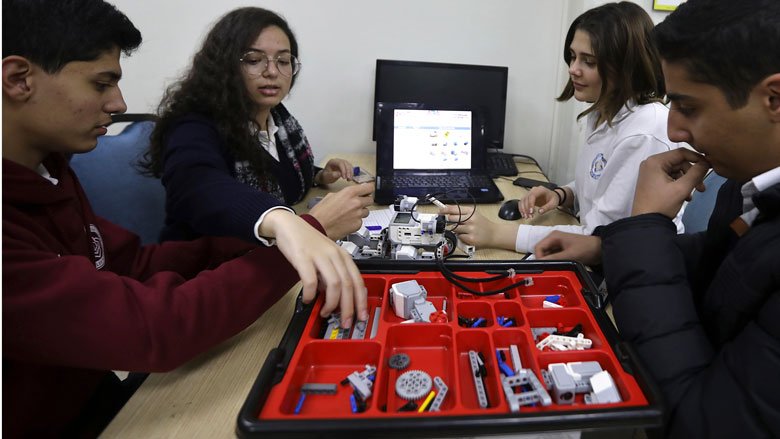The Information and Communications Technology (ICT) sector in the Middle East and North Africa (MENA) region is vibrant and an engine for jobs. Yet, women in Iraq, Jordan, and Lebanon are often excluded from ICT jobs and resources. Rania’s scenario is not unique: In Jordan, 35% of engineering graduates are women, yet they represent less than 15% of the engineering workforce; in Iraq, the estimated gender gap in Internet access is 28%; and in Lebanon, the gap in mobile ownership is 17%, to women’s disadvantage.
Technology is not gender-neutral as women face additional barriers—structural, cultural, and economic—to equal participation in the digital economy. These barriers need to be overcome for digital development to live up to its potential in boosting shared prosperity. To dismantle the gender aspects of digital development, the World Bank identifies and addresses barriers and opportunities in five pillars: digital infrastructure, digital platforms, digital financial services, digital entrepreneurship, and digital skills – all of which apply when considering the topic in the Mashreq.
Against this backdrop, the World Bank Group’s Mashreq Gender Facility recently convened a four-session digital clinic for around 200 policymakers, entrepreneurs, incubators, multinational executives, and sector experts to discuss how to develop a digital economy supportive of women’s agency and participation in Iraq, Jordan, and Lebanon. The figure at the bottom summarizes the outcome of this meeting: it includes broad lessons demonstrating that digital transformation may prove to be a great equalizer for women entrepreneurs and workers in combination with a government-supported enabling environment, demand for skills and talent in the private sector, and accelerators and investors equipped with gender-sensitive support and investment strategies.


